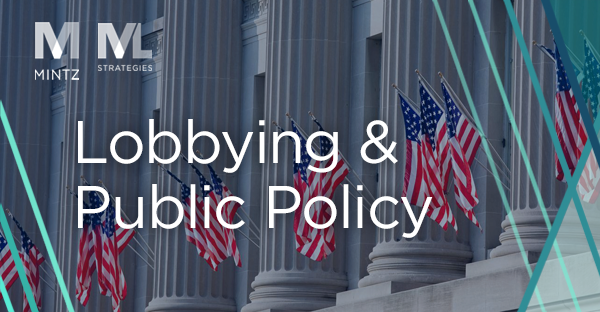
COVID-19 Viewpoints
Filter by:
Commercial Leases in the Age of COVID-19 Part II - A Menu of Options for Landlords and Tenants
April 8, 2020 | Blog | By Geoffrey Smith
In part one of our two part series we discussed a number of the menu options that may be available to commercial landlords and tenants to help them protect their businesses during the COVID-19 pandemic, but few of those options we discussed in part one are without their own unique set of hurdles.
Read more
Essential versus Nonessential Construction in the State of New York: Guidance to Real Estate Developers
April 8, 2020 | Blog | By Jeffrey Moerdler
In accordance with Governor Cuomo’s Executive Order 202.6 issued on March 7, 2020, and the Guidance on Executive Order 202.6 issued on March 27, 2020, all non-essential construction is suspended in the State of New York.
Read more
UPDATED: Leave Tracking and Recordkeeping Under Covid-19: Adjusting for the New Normal
April 8, 2020 | Blog | By Jennifer Rubin
One important question the Families First Coronavirus Response Act (“FFCRA”) and other recent legislative changes raise for employers is how to track and account for employee leaves. While most employers already have systems in place to track employee absences, employers should review their pre-pandemic recordkeeping to account for the “new normal” and new laws. These updates are not only to account for the FFCRA and any other federal or state laws – including the potential application for tax credits – but also, just as importantly, in anticipation of the return to work of the employer’s workforce.
Read more
DOJ Is Already Making Good on AG Barr’s Instruction to Detect, Deter, and Punish Wrongdoing Related to Coronavirus
April 7, 2020 | Blog | By Samantha Kingsbury
On March 16th, Attorney General William Barr issued a memorandum to all United States Attorneys directing each U.S. Attorney’s Office (USAO) to “prioritize the detection, investigation, and prosecution of all criminal conduct related to the current pandemic,” noting that “the pandemic is dangerous enough without wrongdoers seeking to profit from public panic.” It appears that USAOs have wasted no time in prioritizing such cases, as the owner of a Georgia-based marketing company that generated leads for medical-testing companies was arrested earlier this week and charged with conspiracy to commit health care fraud and conspiracy to violate the Anti-Kickback Statute.
Read more
Federal Government Provides Liability Immunity to Manufacturers and Distributors in Fight Against COVID-19: What Companies Need to Know
April 7, 2020 | Blog | By Brian Dunphy, Daniel Herling, Alain Mathieu
Over the past several weeks, the Firm has received a number inquiries from clients (on both coasts) who are interested in manufacturing or selling test kits, respirators, masks, and other PPE in response to the COVID-19 pandemic, with respect to potential liability risks associated with such activities.
Read more
Bay Area Office Landlords Get Further Clarity from Updated Shelter in Place Order
April 7, 2020 | Blog
On March 24, we posted a summary of California’s “shelter in place” order issued on March 16, 2020, and in particular discussed the relationship between it and the Bay Area county orders already in effect at the time. As expected, the Bay Area counties have since lengthened the duration of their shelter in place orders to May 3, 2020 (except Solano County, which extended to April 30) and implemented tighter restrictions.
Read more
FDA Expands Face Mask Enforcement Policy to Allow Imports of KN95 Respirators
April 7, 2020 | Blog | By Benjamin Zegarelli
On April 2, 2020, the Food and Drug Administration (FDA) issued a revised temporary enforcement policy regarding the manufacture and distribution of face masks and filtering facepiece respirators during the COVID-19 public health emergency. The revisions address two key omissions from the initial policy, which was released on March 25, 2020 and which we summarized in a prior blog post. Specifically, the agency has now provided guidance on: (1) the importation of respirators not approved by the National Institute for Occupational Safety and Health (NIOSH) and (2) the manufacture and distribution of face shields. FDA also added a question and answer about respirators manufactured in China to the KN95 air filtering standard (the Chinese equivalent of the U.S. government’s N95 standard) to its FAQ page on the personal protective equipment shortage and issued an emergency use authorization for non-NIOSH-approved respirators made in China.
Read more
Commercial Leases in the Age of COVID-19 - A Menu of Options for Landlords and Tenants
April 7, 2020 | Blog | By Geoffrey Smith
The interruption to business-as-usual in the commercial real estate industry brought about by the COVID-19 pandemic has been unprecedented and, while hopefully only temporary, the full extent of the impact may not be entirely understood for some time to come. Below, we explore just some of the options both landlords and tenants will want to consider when looking to answer that question.
Read more
And Now For Something Completely Different: FDA Actions to Alleviate Regulatory Burdens For Product Sponsors During the COVID-19 Pandemic
April 6, 2020 | Blog | By Joanne Hawana
We’ve been blogging periodically on the various actions taken and enforcement policies being developed by the Food and Drug Administration (FDA) to support and expand the national response to the declared COVID-19 public health emergency. At the same time, however, the agency has also been taking various steps to help medical product sponsors and consumer product manufacturers and distributors prioritize their ongoing regulatory compliance activities during this challenging period for business-as-usual.
As we’ve already covered in depth (see prior post here), on March 18, 2020 the agency issued guidance for clinical trial sponsors regarding how to ensure the continued safety and informed consent of human subjects. That critical guidance document was updated on March 30 to add a new appendix with common sponsor questions, and FDA has stated that it plans to further update the appendix as new questions arise. Over the past several weeks, the agency has issued the following important policies on other issues that also seek to provide some much-needed regulatory relief to FDA-regulated manufacturers and distributors.
Read more
As we’ve already covered in depth (see prior post here), on March 18, 2020 the agency issued guidance for clinical trial sponsors regarding how to ensure the continued safety and informed consent of human subjects. That critical guidance document was updated on March 30 to add a new appendix with common sponsor questions, and FDA has stated that it plans to further update the appendix as new questions arise. Over the past several weeks, the agency has issued the following important policies on other issues that also seek to provide some much-needed regulatory relief to FDA-regulated manufacturers and distributors.
The CARES Act: What Multifamily Owners with Federally Backed Mortgage Loans Should Know
April 6, 2020 | Blog
In response to the COVID-19 outbreak, the United States, like many states has reacted by providing certain multifamily landlord and tenants with economic benefits during this unprecedented global pandemic. On March 27, 2020, President Trump signed the Coronavirus Aid, Relief, and Economic Security Act (“CARES Act”). Section 4023 of the CARES Act contains several provisions that assist borrowers of federally backed multifamily mortgage loans due to the COVID-19 outbreak.
Read more
U.S. Department of Justice Issues First COVID-19-Related Business Review Letter to Medical Supplies Distributors
April 6, 2020 | Blog | By Bruce Sokler, Joseph Miller , Tinny Song
Back in March, we wrote a blog post regarding the FTC and DOJ’s joint statement on antitrust guidance for COVID-19 public health efforts. As part of the press release, the Agencies announced that companies could request an expedited staff opinion on requests for review of collaborative COVID-19-related business efforts. The Agencies would endeavor to respond to all requests within seven business days. On Saturday, the DOJ issued its first business review letter, allowing to come to fruition a joint effort by McKesson, Owens & Minor, Cardinal Health, Medline, and Henry Schein (the “Medical Supplies Distributors”) to expedite and increase manufacturing, sourcing, and distribution of personal-protective equipment (PPE) and COVID-19-related medication.
Read more
SEC Says No Reg. BI Extension Despite COVID-19 Concerns
April 6, 2020 | Blog
In a Statement on April 2, the Chairman of the Securities and Exchange Commission (SEC), Jay Clayton, announced that the June 30, 2020 timeline for implementation of Regulation Best Interest (“Reg. BI”) will remain.
Read more
What You Need to Know: State and Federal Updates Related to COVID-19
April 3, 2020 | Blog | By R. Neal Martin, Taylor Shepherd
As the coronavirus pandemic spreads across the nation, your team at ML Strategies continues to monitor legislative and regulatory updates at the federal and state level. Each week, ML Strategies will provide weekly updates from Massachusetts and Washington, DC to keep you informed and aware of relief opportunities and guidance for your businesses and companies.
Read more
ML Strategies COVID-19 Insights Week In Review — April 3, 2020
April 3, 2020 | Article
As the coronavirus pandemic spreads across the nation, your team at ML Strategies continues to monitor legislative and regulatory updates at the federal and state level. Each week, ML Strategies will provide weekly updates from Massachusetts and Washington, DC to keep you informed and aware of relief opportunities and guidance for your businesses and companies. If you have any questions, please don’t hesitate to reach out to ML Strategies professionals who are closely monitoring developments as they happen.
Read more
FCC Adopts Two Telehealth Programs Offering $300 Million to Support Health Care Providers
April 3, 2020 | Alert | By Russell Fox, Angela Kung
Read about the FCC’s order to adopt two telehealth programs offering $300 million to support health care providers, the COVID-19 Telehealth Program and the Connected Care Pilot Program.
Read more
Governor Baker Extends and Modifies Order Closing All Non-Essential Massachusetts Businesses: Updates that Office Landlords Should Know
April 3, 2020 | Blog | By Chelsea Wood-Brown, Jennifer Kiely, Kelly Frey
On March 23, 2020, Governor Charlie Baker of Massachusetts issued COVID-19 Order No. 13 requiring all businesses and organizations in the Commonwealth of Massachusetts that do not provide “COVID-19 Essential Services” (“Essential Services”) to close their physical workplaces and facilities to workers, customers and the public as of 12:00 noon on Tuesday, March 24, 2020 until 12:00 noon on April 7, 2020. On March 31, 2020, Governor Baker issued a related order, COVID-19 Order No. 21 (the “Order”) extending the operation of its previous order to May 4, 2020 and updating the list of Essential Services based on federal guidance.
Read more
IRS Issues Guidance for CARES Act Employee Retention Credit
April 3, 2020 | Alert
Read about recently issued IRS guidance related to the employee retention credit enacted in the Coronavirus Aid, Relief and Economic Security (“CARES”) Act.
Read more
Five Suggested Updates for 340B Covered Entities Facing COVID-19 Challenges
April 2, 2020 | Blog | By Daryl Berke
The Health Resources and Services Administration (HRSA) recently published guidance regarding the evolving impact of COVID-19 on 340B stakeholders. This new guidance is one part of the U.S. Department of Health and Human Services’ broader effort to maximize regulatory flexibility for health care providers scrambling to meet patient needs during the COVID-19 crisis. While HRSA’s new guidance begins by acknowledging “it is appropriate to take into account the realities of the COVID-19,” HRSA offers little in the way of substantive relief when it comes to 340B. Long on generalities and short on specifics, HRSA merely advises entities to ensure they “have policies and procedures in place to address the proper dispensing of 340B drugs.”
Read more
CMS Releases Several Stark Law Waivers for Use during the COVID-19 National Emergency
April 1, 2020 | Blog | By Theresa Carnegie, Rachel Yount
On March 30, 2020, the Centers for Medicare & Medicaid Services (CMS) issued blanket waivers to the Stark Law that permit certain arrangements between physicians and health care providers implemented in response to COVID-19 that would otherwise violate the Stark Law. The waivers, which are numerous and fairly broad, offer health care entities significant flexibility to combat COVID-19 in ways that may have otherwise violated the Stark Law, such as the ability to pay physicians hazard pay and provide personal protective equipment to physicians at a price that is below fair market value (FMV). Importantly, the waivers only apply to remuneration and referrals related to COVID-19 purposes.
Read more










